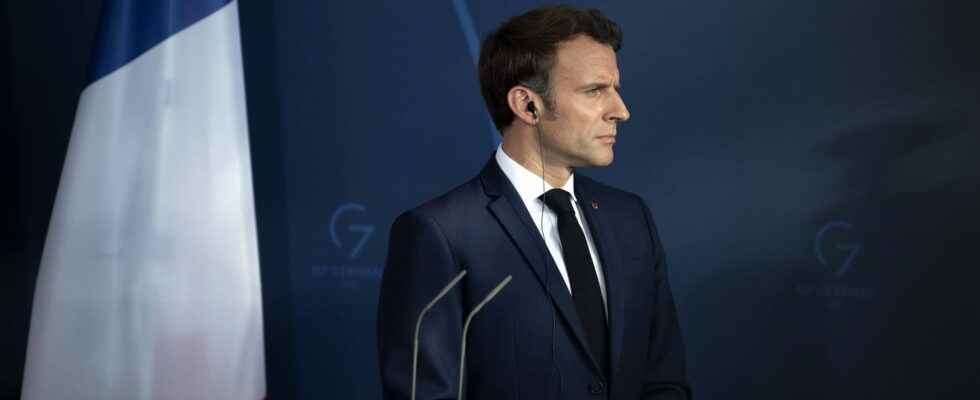PRIME MACRON 2022. The PEPA premium could see its amount triple this year and reach 6,000 euros. For who ? What payment date? We take stock.
[Mis à jour le 13 mai 2022 à 07h58] It was one of Emmanuel Macron’s key proposals during his campaign, and its implementation is only a matter of weeks away. In reality, he could announce the tripling of the exceptional purchasing power bonus for the summer of 2022. In fact, the “PEPA bonus is capped” at 1,000 euros. It would increase to 2,000 euros net of tax. And even up to 6,000 euros for companies that have signed aprofit-sharing. All employees whose salary does not exceed 3x the amount of the minimum wage are eligible. Qualified as “employee dividend“on several occasions by the Head of State, the Macron bonus was paid to nearly 4 million French people last year for an average amount of 506 euros. A figure which should therefore be revised upwards this year, in all likelihood.
Remember that the payment is voluntary, there is no obligation for the employer to give it. Advantage for him, it is totally exempt from employer contributions. On the employee side, good news also, this PEPA bonus is not subject to social security contributions. Another major advantage, it does not have to be reported on the tax return. Know that Emmanuel Macron has never ruled out the idea of making it compulsory from next year, in 2023. Under what conditions? At what amount? For which companies? The contours of this Macron bonus are still quite vague, and should be clarified in the weeks or even days to come.
Since 2019, employees have been able to receive an exceptional bonus, exempt from taxes and social security contributions called the “Macron bonus”. This exceptional purchasing power bonus (is paid by any employer who wishes it to employees, under certain conditions. In particular if the employee in question does not exceed a certain income limit. This tax and social security exemption scheme aims to encourage employers to pay bonuses to their employees in order to enhance their purchasing power. It is not a state bonus, but a company bonus which remains optional and voluntary.
To be exempt from employee contributions, the Macron bonus cannot exceed the amount of €1,000. Companies that have a profit-sharing agreement can pay the Macron bonus up to €2,000. This amount, doubled, is also valid for companies with fewer than 50 employees, and second-line workers (if revaluation measures are taken). This bonus could now triple in the event of the re-election of the LREM candidate on April 24, going from 1,000 euros to 3,000 euros. And up to 6,000 euros without charges or taxes for companies benefiting from a profit-sharing agreement.
The amount of the Macron bonus exempt from contributions is capped at €1,000. However, this amount may double and reach €2,000 in the following cases:
- The company has signed a profit-sharing agreement
- The company has less than 50 employees
- Second-line workers (if upgrading measures are taken)
The exceptional purchasing power bonus is exempt from income tax and from any social security contributions or contributions. But then, who is eligible for the Macron bonus? Employees earning less than 3 times the Smic (over the 12 months preceding the payment). This Macron bonus does not replace any element of remuneration.
The Macron bonus is paid within a period provided for by law. In this case, between the June 1, 2021 and the March 31, 2022. Whether you are a civil servant, an employee, or an industrialist, you have the possibility of benefiting from it.
Already extended in 2021, the premium PEPA is renewed for the year 2022. Note that the employer is not obliged to pay the Macron bonus. If he wishes to pay it, he has the option of doing so atall of its employeesor only to employees whose remuneration is less than 3 times the Smic.
In 2022, the Macron bonus benefits both employees and apprentices, as well as temporary workers and public officials. The employer can completely modulate the amount of the payment of the PEPA bonus according to the beneficiary according to certain criteria such as the employee’s remuneration, the employee’s classification level, his working conditions during the Covid crisis, or still his working time over a year.
